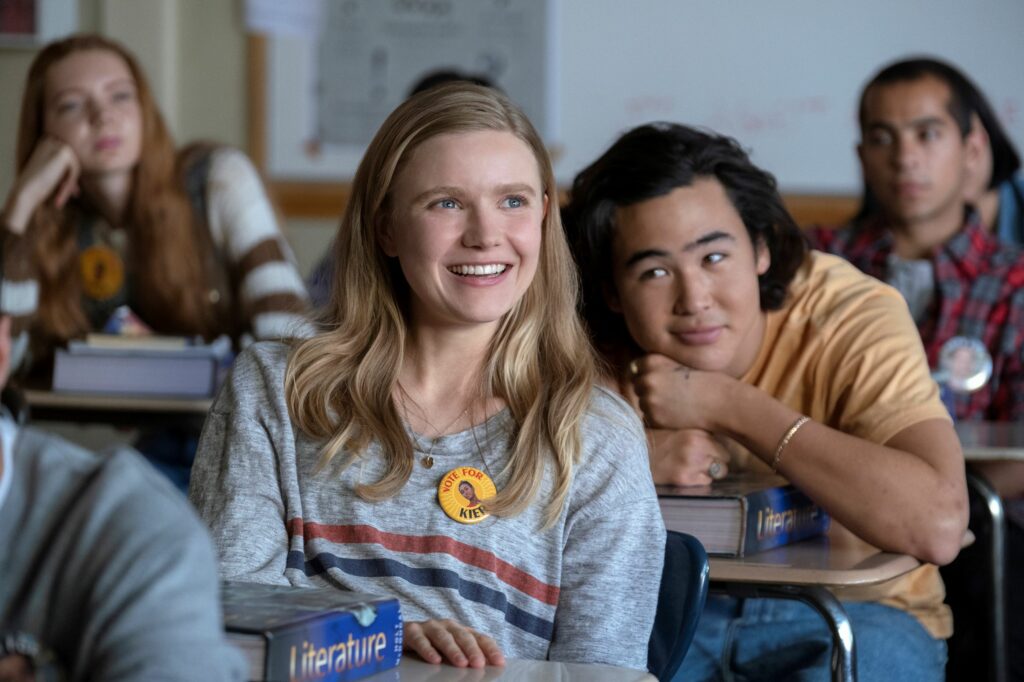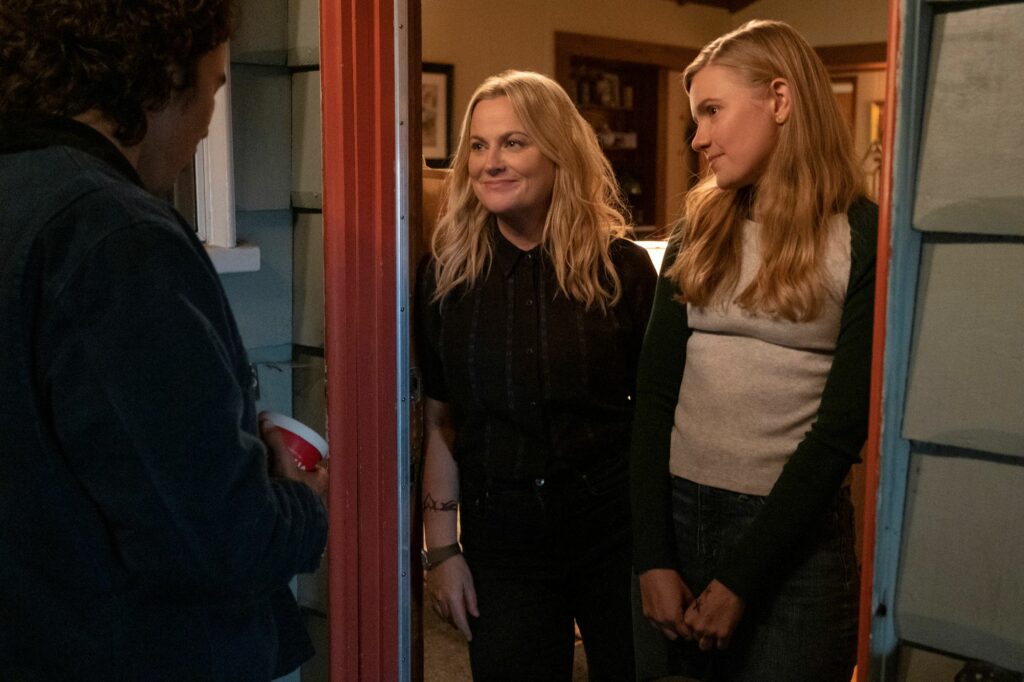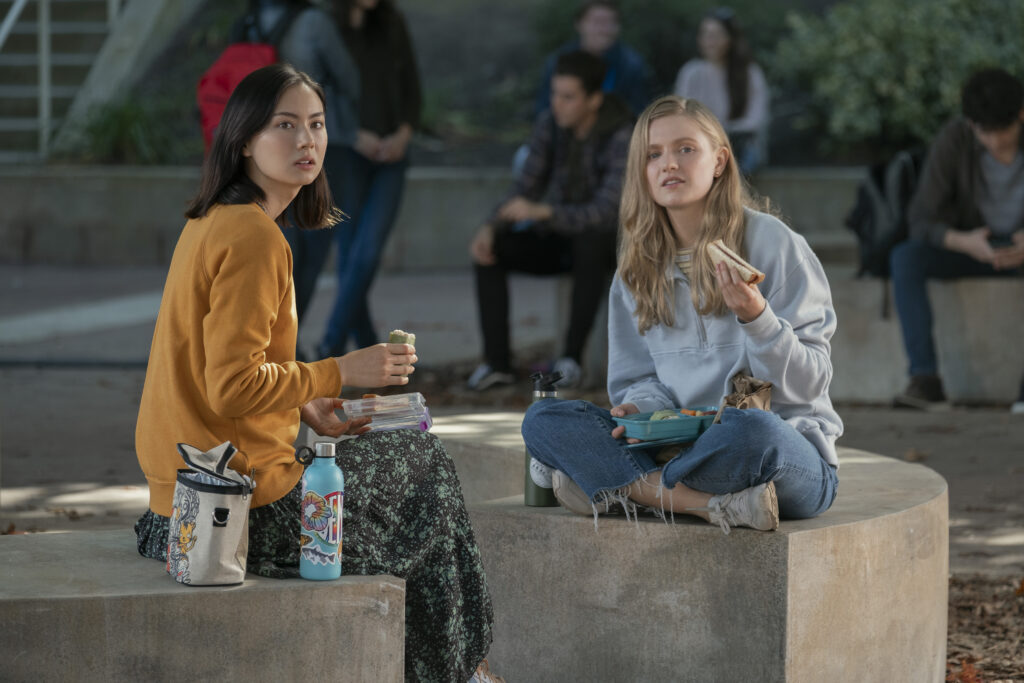A YA movie with a twist, Amy Poehler’s newest project Moxie sees the teenage coming-of-age tale play out against the backdrop of a political revolution in an everyday American high school.
Vivian (Hadley Robinson) is your typical ‘good girl’: quiet, unassuming and easily intimidated. She walks the school halls with her head down and leans on her best friend and fellow wallflower, Claudia (Lauren Tsai) for support. Yet, that all changes one fateful day when her world collides with that of the new girl, Lucy (Alycia Pascual-Pena). As though awakened from a deep slumber, she comes to realise that she has been blindly accepting the status quo, allowing her fellow classmates to be hurt through her own apathy.

Bursting with exciting new ideas, Vivian is unable to contain herself and explodes in a fit of frustration. Unwilling to just sit back and accept her school’s double standards any longer, she declares war on the old-fashioned and unjust leaders of her institution. Soon, a full-blown revolution is underway, rocking Moxie‘s sleepy little suburb.
Vivian’s new life appears bright and full of hope, filled with new friends, new ideas and new possibilities. Her foray into the girl power movement is an exciting and life-changing experience, but that’s not to say that everything is just rainbows and unicorns. All revolutions face opposition, as our protagonist soon finds out. Things she didn’t even know she was risking are suddenly on the chopping board and, if she isn’t careful, she could lose everything while fighting to have it all.
Full disclosure: while it dabbles in the subject of revolution, there is nothing particularly revolutionary about Moxie. While it does add a modern twist to the high school coming-of-age classic, it also feels very reminiscent of many early ’00s movies like Mean Girls and John Tucker Must Die. Despite this, or perhaps because it leans so heavily into its genre clichés, Moxie is undoubtedly a funny and entertaining watch. It effectively walks the line between light-hearted comedy and serious social issues to produce a feel-good film that’s still culturally relevant.

A striking difference between Moxie and the girl power films of the past however, is the diversity on the screen. For once, we get proper representation of modern feminism, with a diverse cast and a plot that explores intersectional feminist issues.
Unexpectedly, while this reviewer adored Keira (Sydney Park) and Lucy, it was Claudia the shy best friend and unwilling co-rebel who stole my heart. Despite initially evoking scepticism for her reluctance to join in the movement of change barrelling through her school, Moxie creates understanding and empathy for the character. Unlike Vivian, Claudia feels responsibility to her mother and believes she must do well at school and attend a prestigious university. She has more to lose and is less inclined to risk it, a sentiment most audience members will be able to sympathise with.
Truthfully, I feel her character is essential for the film, as it allows for a diverse representations of feminism, not only with regards to ethnicity, sexuality, gender and social class, but also for diversity of opinion and personality. Not every feminist wants to, or is able to, get up and scream from the rafters. It is refreshing to see this being acknowledged without being shamed. Have no fear though, there are still plenty of loud and proud characters in Moxie, so that everyone can find a character they identify with.

Aside from the obvious and at times awkward clichés, the only real problem with Moxie is its unnecessary romantic subplot. While it was admittedly sweet, it did not add anything of value to the plot. In fact, every scene between Vivian and Seth (Nico Hiraga) left me feeling frustrated, and wishing for another scene with Moxie’s leading ladies instead.
Despite these complaints, Moxie proves to be an enjoyable, relatable and comforting coming-of-age tale that goes beyond the typical Hollywood chick flick themes. More so than exploring a first romance or learning self-acceptance, this film focuses on community and reclaiming power from those who hoard it. It forces its characters to face their blind compliance and challenges us to look at our own lives to see where we fall short.
Dealing with difficult issues like immigration, equality and what it means to have genuinely intersectional feminism, Moxie reminds us of the importance of having a purpose, as it asks its characters to decide what they believe in and whether it’s worth the sacrifice.
Moxie releases on Netflix Wednesday 3rd March.
